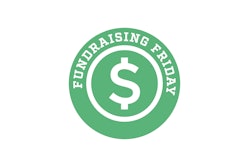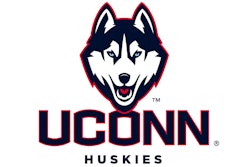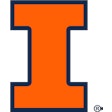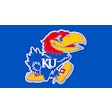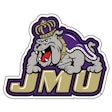Minor-league baseball clubs go nonprofit, while their host communities reap the benefits
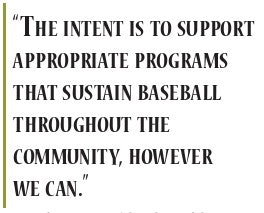
At a time when Triple-A baseball franchises are making private investors more money than ever - in 2000, the average team netted $193,000 on revenues of $3.1 million, up from an average profit of $86,766 a year earlier, according to Minor League Baseball - several club owners are looking to hand their teams' profits over to their communities instead.
In May, a Tacoma, Wash., group announced its bid to purchase the local Triple-A club, the Rainiers, and turn the franchise into a nonprofit, community-based organization. If the sale is approved, the Tacoma Baseball Foundation will operate the team, channeling all profits into Little League programs, park improvements, internship opportunities and "anything we can do to give back to the community," says Colby Parks, a Tacoma attorney and the executive director of the fledgling foundation. "Overall, the intent is to support appropriate programs that sustain baseball throughout the community, however we can."
The Tacoma Baseball Foundation is in the first stages of a $10 million capital campaign to raise the funds necessary to purchase the club from its current owner. While Parks admits it is far too early to tell if or how much his foundation will benefit the Tacoma community, he hopes it will be as successful as the model organization from which he got the idea.
Four years ago, the Memphis (Tenn.) Redbirds Baseball Foundation became the first nonprofit entity to both own and operate a professional baseball team and its stadium, and has enjoyed overwhelming success, revitalizing downtown Memphis and bringing to that city youth sports programs that it sorely needed. In 1992, funding had been cut from the Memphis City School System's budget for middle and junior high baseball and softball programs. Meanwhile, the inner city's population continued to grow.
"Baseball had become sort of a dinosaur in our urban areas. In the outskirts and suburbs, baseball was alive and well, producing good players and quality programs. But in the inner city, it was almost nonexistent," says Reggie Williams, vice president of community relations for the Redbirds, the Triple-A affiliate of the St. Louis Cardinals. "This organization wanted to do something that would pull Memphis together. With the urban population growing, there was a great opportunity to help some youngsters who perhaps normally would not have been exposed to or have the resources to be involved in baseball. We're here to try to bridge that gap."
The Redbirds Foundation instituted two programs designed to address that need. The first, STRIPES (Sports Teams Returning In the Public Education System), provides opportunities for students in 38 of Memphis' 41 middle and junior high schools to play baseball or softball during the school year. More than 1,200 youths participated this past season, which began in March and ended in May with a championship game for each of the middle and junior high school leagues.
The other program, R.B.I. (Returning Baseball to the Inner City), is a variation of the Major League Baseball program instituted in 1989 in south-central Los Angeles and offers youths ages six to 15 the opportunity to play organized baseball and softball in the summertime. The eight-week program began with 250 children at six Memphis inner-city locations, and since 1998 has grown to include more than 750 youths at 14 sites.
The Redbirds Foundation provides participants in both programs with uniforms and equipment (coaches and umpires are also paid by the foundation), and those in the summer R.B.I. program are fed lunch five days a week, in cooperation with Kroger, a regional grocery chain. "For a lot of the children, unfortunately, this may be one of their better meals of the day," says Williams, who maintains that despite providing youths opportunities to play sports, the programs' broader focus is child development. "Teamwork, decision-making, learning to cope with winning and losing - all are life skills that you can learn on the diamond."
Memphis youths aren't just learning on the field. Starting this fall, the Redbirds Foundation will also begin offering a tutoring and reading program. "We'll actually bring kids to the ballpark in the afternoons," says Dave Chase, a team spokesman and president and executive director of The National Pastime, a minor-league baseball museum under development at the Redbirds' AutoZone Park. This program is in addition to free instructional clinics for youths and coaches that the Redbirds run at the stadium. "The ballpark is unique in that it has a lot of public spaces; it's a year-round facility," Chase says. "Companies and other groups also use it to have meetings and social functions."
It was imperative to Dean Jernigan, the local businessman responsible for landing the Redbirds franchise and building AutoZone Park in 1998, that the $80 million stadium be perceived as a public facility. Ironically, the city's previous team left after its owner made demands for a new stadium and was rebuffed by Memphis' civic leaders. (The Double-A Chicks relocated to nearby Jackson, Tenn., in 1997 and were renamed the West Tenn Diamond Jaxx.) "Memphis has a minor-league tradition spanning well over 100 years," says Chase. "When the Chicks moved, the city was looking at the prospect of being without baseball, which hadn't happened since the mid- to late '70s."
Jernigan, who grew up in Memphis and had been involved with the Chicks organization, made a vow to return baseball to the city. "He asked himself if it was really fair for a community to be held hostage by an owner," remembers Chase. "He didn't think it was, so he decided to set the whole thing up as a nonprofit, giving back to the community in which he had grown up."
Less than 10 percent of AutoZone Park's cost was paid for by city government funds, with the remainder coming from the sale of tax-exempt bonds, which Chase estimates will be paid within 12 to 15 years. "Once those bonds are paid off, we're probably talking in the neighborhood of $8 million to $10 million a year that will be available for youth sports in the mid-South," he says of potential profits for the Redbirds, who have ranked second in attendance among all minor-league teams the past three seasons. "Until the stadium is paid for, it'll be a while before we really start throwing out lots of money and become a grant-issuing organization for sports."
Apart from its positive social effects in Memphis, AutoZone Park's construction helped spur a revitalization of a downtown area "that was borderline dead, if anything," Chase says. Located a few blocks from the Mississippi River, the ballpark has become the center of several major developments, including office buildings, retail spaces, parking garages, restaurants, hotels and the first new downtown elementary school (a halfblock from the stadium) in decades. Says Chase, "Downtown is really alive now."
Both Chase and Williams concede that neither the ballpark nor the Redbirds Foundation would have been possible without the generosity of the Jernigan family. While a number of minor league baseball teams have either established or given to charitable foundations, it is still a rarity to hear of owners who are willing to donate their franchises' entire profits to the public. Still, with 253 minor-league teams playing in 45 U.S. states and five Canadian provinces (16 more teams play in Mexico), the potential exists to provide millions of youths in those communities with additional recreation if some sort of partnership were developed between the clubs and their host municipalities.
"The nonprofit message is a pretty hard one to convey. For most folks, it doesn't register. But it's slowly taking root here," says Chase. "It's great public relations, sure, but it can be just as positive for a community."
Residents in Tacoma are hopeful that their team will be purchased by the nonprofit foundation there and benefit the community to a similar degree. While at press time the deal was pending, many have already responded to the announcement with vocal and financial gratitude.
"From the mayor and city council on down, we've all been stopped at the store or at the gas station by people saying, 'I'll pledge $25 a month for a year. Where do I send my check?' " says Parks. "I expect that a good chunk of our campaign funds will come from individual members of the community. The support's been really wonderful." The response from Rainiers employees, too, has been overwhelmingly positive. "They're really excited at the possibility of keeping the team here permanently," Parks continues. "It's an important part of our town."



















